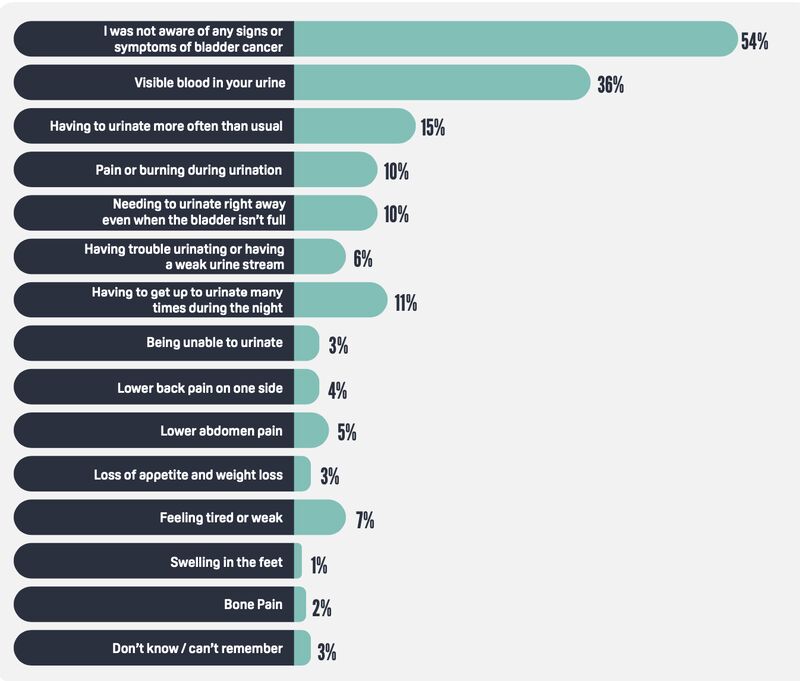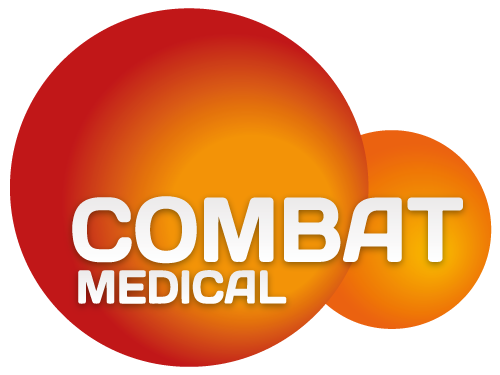Bladder cancer is the seventh most commonly diagnosed solid tumour worldwide, with around 75% of cases being non-muscle-invasive. Despite its prevalence, awareness about its signs and symptoms remains alarmingly low. A recent patient survey conducted by the World Bladder Cancer Patient Coalition has revealed some concerning statistics about public knowledge of bladder cancer.
The survey found that a significant 54% of respondents were unaware of any signs and symptoms of bladder cancer before their diagnosis. This lack of awareness was particularly pronounced among younger individuals. Specifically, 69% of respondents under the age of 55 reported no prior knowledge of bladder cancer symptoms, compared to 56% of those aged 55-74, and 42% of those over the age of 74. These findings highlight the urgent need for increased public education and awareness campaigns, particularly targeted at younger demographics.
Signs and Symptoms of Bladder Cancer
Bladder cancer can present with a variety of symptoms, often mistaken for less serious conditions. Common signs include:
- Haematuria: Blood in the urine is the most common symptom, which may appear pink, red, or brown.
- Dysuria: Pain or burning sensation during urination.
- Frequent Urination: An increased need to urinate, even if the bladder is not full.
- Urgent Urination: A sudden, urgent need to urinate.
- Pelvic Pain: Discomfort or pain in the pelvic area.
- Back Pain: Pain in the lower back, usually on one side.
Given these symptoms, it is critical for individuals experiencing any of these signs to seek medical consultation promptly.

Treatment Options and Innovations
Traditionally, the treatment for high-risk, non-muscle-invasive bladder cancer (NMIBC) that does not respond to Bacillus Calmette-Guerin (BCG) therapy has been radical cystectomy. However, this invasive procedure involves significant morbidity and a substantial impact on the quality of life. As a result, many patients are either unfit for or refuse this form of treatment.
An alternative, bladder-sparing treatment is hyperthermic intravesical chemotherapy (HIVEC). This innovative approach involves the administration of heated chemotherapy directly into the bladder. A recent study published in Urologic Oncology by Pijpers et al. (2021) has provided promising data on the efficacy of HIVEC.
Study Insights on HIVEC
The study retrospectively analysed data from 56 patients who received at least five HIVEC installations using the Combat Bladder Recirculation System (BRS) between October 2014 and March 2020. The results showed a 2-year high-grade recurrence-free survival rate of 35%, with only one severe adverse event reported. This suggests that HIVEC is not only effective but also a safe alternative for patients with BCG-unresponsive NMIBC.
The authors of the study concluded that HIVEC:
“…seems to be an alternative treatment option for patients who refuse or are unfit for radical cystectomy” and “…is a well-tolerated and safe bladder-sparing treatment in patients with BCG-unresponsive NMIBC.”
Implications for Patient Care
The findings from the study highlight the potential of HIVEC as a viable option for patients who face limited choices due to the adverse impacts of radical cystectomy. This bladder-sparing treatment could significantly improve patient outcomes and quality of life.
Treatment Advances
The recent survey by the World Bladder Cancer Patient Coalition emphasises a critical gap in public awareness about bladder cancer symptoms, especially among younger populations. Addressing this gap through targeted awareness campaigns is essential to ensure early detection and treatment.
Meanwhile, advancements in treatment options like HIVEC offer hope for patients with high-risk, BCG-unresponsive NMIBC. As the medical community continues to explore and validate these alternatives, the prospects for effective and less invasive bladder cancer treatments look promising. With ongoing research and increased awareness, the journey towards better management and understanding of bladder cancer continues, bringing new hope to patients worldwide.

